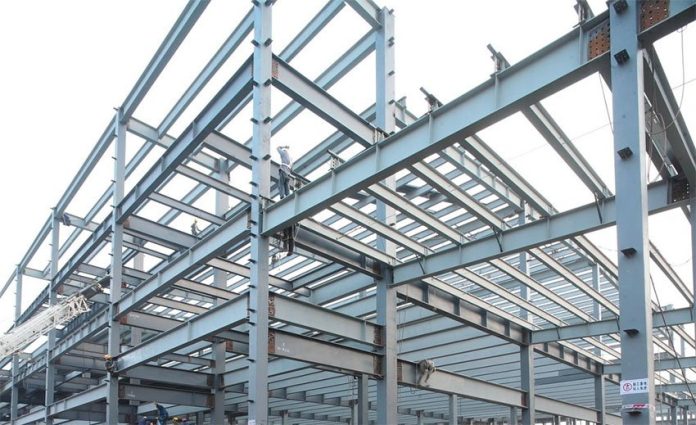The United States announced yesterday it would impose tariffs on imports of fabricated structural steel from Mexico after an investigation determined that some exporters receive unfair subsidies.
The U.S. Department of Commerce (DOC) said in a statement that a countervailing duty investigation found that Mexican steel exporters received subsidies at rates ranging from 0.01% to 74.01%.
Separate investigations considered steel imports from Canada and China, and tariffs ranging from 30% to 177% will be imposed on product shipped to the United States by companies in the latter country. In Canada’s case, steel exporters were found to be receiving subsidies of less than 0.5% and no tariffs will be imposed.
“Based on these preliminary determinations, the Department of Commerce will instruct U.S. Customs and Border Protection to collect cash deposits from importers of fabricated structural steel from China and Mexico,” the DOC said.
The commerce department said the petitioner for the investigations was a Chicago subgroup of the American Institute of Steel Construction. It also noted that imports of fabricated structural steel from Mexico were valued at US $622.4 million last year.
Among the Mexican companies that will be subject to a 74.01% tariff are Swecomex, a subsidiary of Grupo Carso, which is owned by billionaire businessmen Carlos Slim, and Preacero Pellizzari Mexico.
The DOC said the final determinations of its countervailing duty investigations will be announced on or about November 19.
“The strict enforcement of U.S. trade law is a primary focus of the Trump administration . . . Antidumping and countervailing duty laws provide American businesses and workers with an internationally accepted mechanism to seek relief from the harmful effects of the unfair pricing of imports into the United States.”
Mexico’s Secretariat of the Economy (SE) said in a statement that the tariffs are not linked in any way to the Section 232, or national security, duties that were imposed by the United States on steel and aluminum products in June 2018 and lifted in May of this year.
It also said that there is no connection between the new duties and the blanket tariffs threatened by United States President Donald Trump in May if Mexico didn’t do more to stem illegal migration.
“It should be noted that this type of investigation is carried out regularly when an industry feels affected by imports that it believes are being carried out through unfair practices (dumping and subsidies). The investigation in question is ongoing and will be definitively resolved in the next six months.”
The secretariat added that it will offer support to companies affected by the new tariffs “for the defense of their interests.”
Jesús Seade, foreign affairs undersecretary for North America, said the tariffs don’t represent a threat to ratification of the new North American trade agreement, which Mexico’s Senate approved last month.
In a series of Twitter posts, Seade also noted that only certain private companies will be affected by the duties.
President López Obrador said today that he wants to “fix” the situation and that his administration would take steps to that end. He stressed that the government’s relationship with the Trump administration is good.
“I’m confident that we’re going to be able to confront this new challenge of steel tariffs . . . because the relationship is good.”
Foreign trade specialists agreed with the government’s assessment that the tariffs don’t represent a threat to the wider trade relationship or the free trade deal.
“. . . There won’t be a great impact for the [steel] industry given that it [the tariff] is only on one specific product and only for some companies,” said Alejandro Gómez, an international trade expert at law firm Foley Gardere Arena.
He also said that ratification of the United States-Mexico-Canada Agreement (USMCA) isn’t at risk, stressing that the tariffs were the result of a specific investigation affecting only one industry.
Armando de Lille-Calatayud, an international trade lawyer at Baker McKenzie, said the tariffs are the result of a process that is more technical than political, adding that they didn’t come as a surprise.
Like Seade and Gómez, he dismissed any possibility that the new duties could affect ratification of the USMCA.
Source: El Financiero (sp), Milenio (sp)
